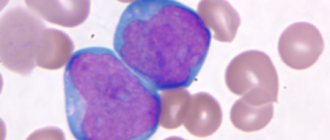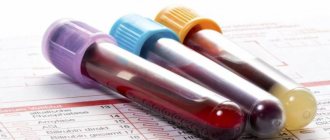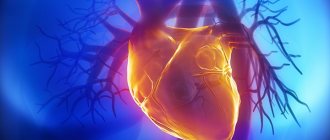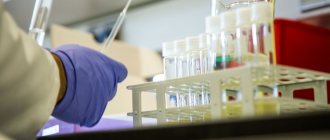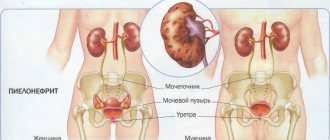General information about immunoglobulins and tests
According to their properties and purposes, the analysis for immunoglobulins is divided into several types, for example, the analysis for immunoglobulin type E is necessary if allergic diseases are suspected.
If there are no antibodies in the patient’s body, this means that immunoglobulin E is within the acceptable range. In the opposite case, especially with excessively elevated IgE in the blood plasma, the patient has an innate predisposition to the increased appearance of IgE antibodies.
In the event that the indicators are clearly exceeded, you should immediately contact a specialized doctor for examination and adequate treatment.
The following immunoglobulin M test is done if any acute infection is suspected. Usually the appointment occurs to identify:
- Gastritis-provoking bacteria.
- Epstein-Barr virus.
- Cytomegalovirus infections.
The standard norm of this protein in humans is within 10%.
The situation with protein group A is as follows: normally, such an analysis will show an amount in the order of 10-15% of the total number of proteins of other types. The IgA protein is usually studied during repeated infectious manifestations of human mucous membranes.
In cases where it is extremely necessary to monitor therapy, in particular, if medical preparations contain pure immunoglobulin, or it is simply necessary to detect the presence of antibodies to a certain disease, doctors prescribe a general blood test and an immunoglobulin G test.
At normal levels, the decoding shows that this category of protein varies from 57 to 70%.
When is an immunological blood test prescribed?
An immunological blood test allows you to get a clear picture of the state of the body’s immune system, the presence of immunodeficiency, both congenital and acquired, and identify the presence and nature of chronic diseases.
Sometimes the immune system malfunctions and the body attacks itself (autoimmune diseases). They are also easy to detect using immunological serological testing.
This type of study is prescribed in the following cases if:
- the infectious disease is long-lasting and difficult to treat;
- there is a suspicion of congenital immunodeficiency;
- there is a possibility of acquired immunodeficiency, including that caused by HIV;
- autoimmune diseases are likely;
- allergic reactions are observed;
- there is a suspicion of oncological processes;
- complex surgical intervention is planned;
- it is necessary to determine the causes of male or female infertility;
- it is necessary to monitor the results of using hormonal drugs or immunosuppressants;
Using an immunological laboratory test, the following diseases can be diagnosed:
- immunodeficiency conditions, both congenital and acquired, including AIDS;
- autoimmune diseases: rheumatoid arthritis, systemic lupus erythematosus;
- diseases of the gastrointestinal tract;
- sexual infections;
- malignant neoplasms;
- diseases of the thyroid gland, disruption of its function;
- allergies with identification of allergens;
- toxoplasmosis;
- hepatitis B and C;
- herpes;
- Rhesus conflict between mother and fetus;
- candidiasis;
- cytomegalovirus infection;
- glomerulonephritis;
- myocarditis;
- osteomyelitis.
This is not a complete list of diagnoses; for final diagnosis, an immunogram is necessarily used as an additional method.
Preparing for the study and reasons why it may be rescheduled
After the doctor prescribes a direct blood test for total immunoglobulin, in particular group E, the patient must prepare for it very carefully . Typically, the analysis is taken in the morning. That's why:
- The night before the procedure, it is not recommended to eat food in any form. Liquid consumption is allowed.
- The laboratory assistant informs that during the collection of material, discomfort may occur due to the application of a tourniquet and the procedure for taking the material.
- In addition to eating, it is strictly prohibited to drink alcohol before the test. Smoking is also not recommended.
In addition, depending on the circumstances, the doctor has the right to reconsider the use of certain medications. This applies to the category of drugs that, in his opinion, can influence the results of the study.
It is worth highlighting some objective situations and reasons why the interpretation of results may be unreliable:
- A test for total immunoglobulin E may not be informative during cancer radiation therapy and chemotherapy procedures.
- Also, problems with decoding may arise due to some medications that a person is taking for this period.
- In addition, the test may be ordered again if it turns out that the patient was prescribed a blood transfusion within a 6-month period.
- And if during the last 3 days an examination was carried out using radiation.
Immunoglobulins class G (Ig G)
Class G immunoglobulins represent the largest group (about 75%) of antibodies found in the human body. IgG are incomplete antibodies that penetrate the placenta, fix complement and provide protection in the first months of a newborn’s life, which is carried out by antibodies developed by the mother’s body that have crossed the transplacental barrier. These immunoglobulins belong to the AT of the secondary immune response; they are synthesized by plasma cells and appear later than IgM, when the disease becomes known by other signs. IgG can be directed to any antigen encountered during life. Currently, 4 types of antibodies (subclasses) G are used for laboratory research: IgG1, IgG2, IgG3, IgG4, which have different functional abilities, which, however, are of interest only to specialists.
Class G antibodies are used to diagnose many diseases of a bacterial and/or viral nature, but are of particular importance in the detection of hepatitis C. Appearing 3 months after IgM, they are present in a chronic course and persist for life even after recovery, but in the latter case their number reaches such a level that the test system ceases to “feel”. Meanwhile, “fresh” disease can be detected using total antibodies to hepatitis C (IgM + IgG → Anti-HCV total).
Preserving lifelong in the body and forming immunological memory, IgG is a sign of stable immunity against many infectious agents.
Antibody tests
Biomaterial for analysis can be:
- Smear. This is a painless, atraumatic procedure. Using a cotton swab, part of the epithelium of the mucous membrane of the oral cavity, throat, urethra, vagina, cervical canal of the uterus or anus is removed.
- Blood. For most antibody tests, blood from a vein is used, since its saturation with formed elements and antigens is greater than in blood taken from a capillary using a finger prick. Blood is taken using a needle from the cubital vein.
- Urine or semen. Can serve as a material for analysis using the PCR method. To ensure the reliability of the result, urine or semen should be collected in a sterile container immediately before being submitted for analysis.
- Other options. Sometimes cerebrospinal fluid, stomach or intestinal biopaths, vitreous tissue of the eye, and fetal fluid are used for research.
When carrying out differential diagnosis, an AT test is carried out for each of the suspected infections. Thus, when examining reproductive function, a test may be prescribed for antibodies to the female hormone human chorionic gonadotropin or for antisperm antibodies that block the ability of sperm to fertilize. During pregnancy, a test for antibodies to the Rh factor is also required; this type of immunoglobulin is produced in the mother’s body if her blood is incompatible with the blood of the fetus.
There are qualitative and quantitative antibody testing methods. The first are called tests and provide information about the presence of infection in the body, the second determine the level of immunoglobulins. Currently, three main methods for determining immunoglobulins are used; to obtain the most reliable and complete information, they can be used in combination.
PCR
Using the polymerase chain reaction method, you can detect the presence of single copies of bacteria or viruses, determine their type and quantity. The PCR method is based on step-by-step cloning of the pathogen, the number of microorganisms increases exponentially, after which they are identified.
The results of the analysis will be ready in 5 hours, its accuracy in detecting the pathogen is almost one hundred percent. The disadvantage of the technique is the possibility of obtaining a false positive result. This can happen if the disease has already been cured, but unrenewed epithelial cells remain in the body, which the system will clone.
ELISA (enzyme-linked immunosorbent assay)
Enzyme immunoassay allows you to identify antibodies of various types and determine their titer, on the basis of which a conclusion is made about the disease, as well as the form of its course.
- A high level of IgM and the absence of IgG and IgA indicate an acute phase of a disease of an infectious nature.
- Positive results for antibodies A, M, G indicate relapse of chronic infection.
- The period of remission of a chronic disease is characterized by a high titer of immunoglobulins G and A in the absence of IgM.
- Immunity formed after a disease or vaccination may be indicated by the absence of immunoglobulins of type A, M with a positive reaction to antibodies G.
REEF
The serological rapid diagnostic method, based on the phenomenon of fluorescence, is considered the most informative for detecting antibodies, since it is highly sensitive and does not give false-positive or false-negative results. To identify the antigen–antibody complex, an indirect immunofluorescence reaction—RNIF—is used. When conducting a qualitative analysis, a diagnostic antigen-antibody complex is used, obtained from animal blood serum treated with fluorochrome.
INTERPRETATION OF RESULTS:
Reference values (standard version):
| Parameter | Reference values | Units | |
| Men | Women | ||
| Immunoglobulin G (IgG) |
|
| g/l |
| Immunoglobulin M (IgM) |
|
| g/l |
| Immunoglobulin A (IgA) |
| g/l | |
|
| ||
| Downgrade | Level up |
|
|
We draw your attention to the fact that the interpretation of research results, diagnosis, as well as the prescription of treatment, in accordance with Federal Law No. 323-FZ “On the fundamentals of protecting the health of citizens in the Russian Federation” dated November 21, 2011, must be carried out by a doctor of the appropriate specialization.
" ["serv_cost"]=> string(4) "1070" ["cito_price"]=> NULL ["parent"]=> string(2) "29" [10]=> string(1) "1" [ "limit"]=> NULL ["bmats"]=> array(1) { [0]=> array(3) { ["cito"]=> string(1) "N" ["own_bmat"]=> string(2) "12" ["name"]=> string(31) "Blood (serum)" } } }

